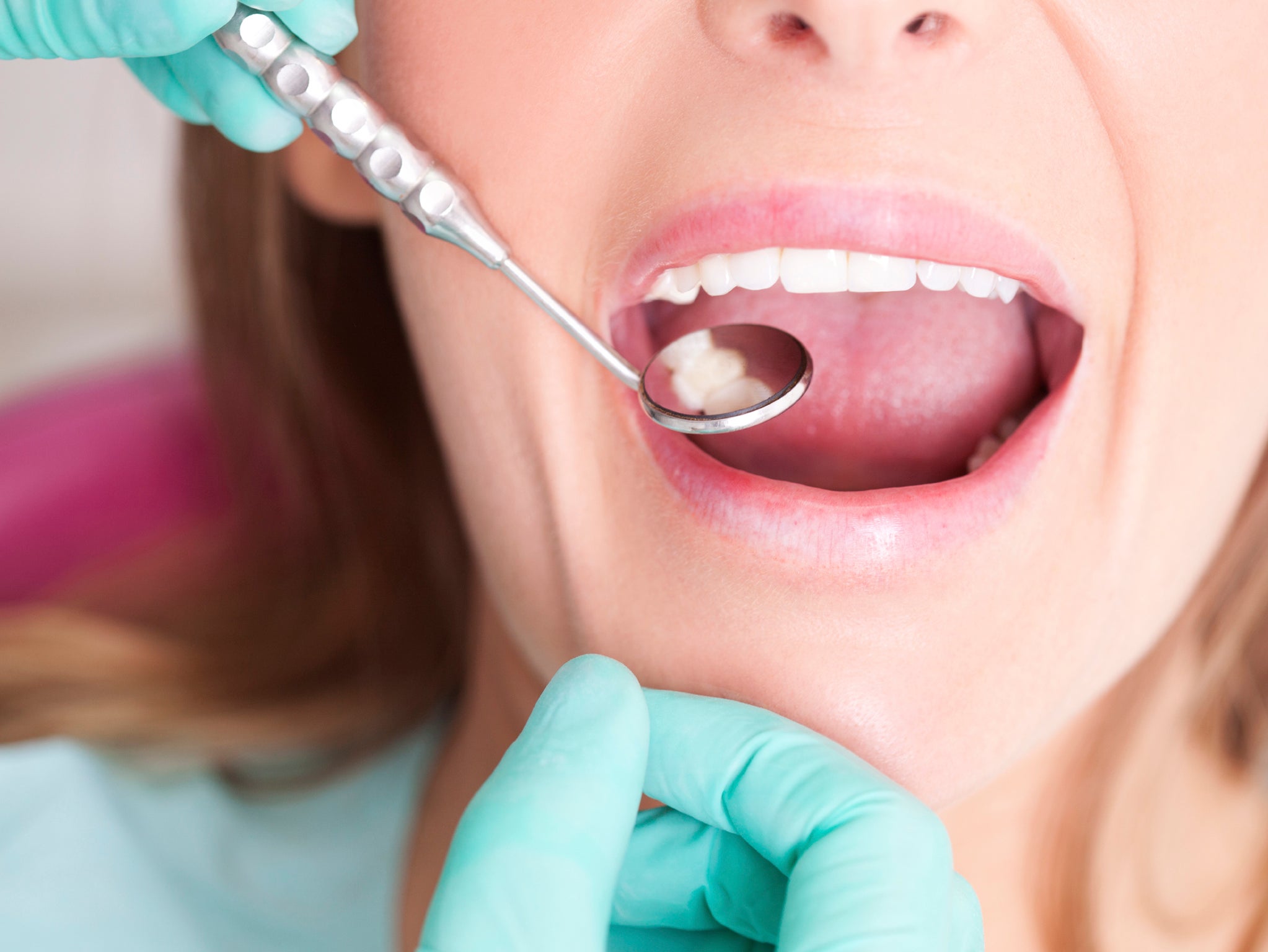Dental charges in England set to increase by 5%
Price hike is in response to the £22 billion cuts needed across the NHS

Your support helps us to tell the story
From reproductive rights to climate change to Big Tech, The Independent is on the ground when the story is developing. Whether it's investigating the financials of Elon Musk's pro-Trump PAC or producing our latest documentary, 'The A Word', which shines a light on the American women fighting for reproductive rights, we know how important it is to parse out the facts from the messaging.
At such a critical moment in US history, we need reporters on the ground. Your donation allows us to keep sending journalists to speak to both sides of the story.
The Independent is trusted by Americans across the entire political spectrum. And unlike many other quality news outlets, we choose not to lock Americans out of our reporting and analysis with paywalls. We believe quality journalism should be available to everyone, paid for by those who can afford it.
Your support makes all the difference.Charges for dental care in England are set to rise by five per cent this year, and by another five per cent next year.
The decision to “uplift dental charges for those who can afford it” was taken as the NHS strives to make £22 billion cuts - or “efficiency savings” as it is worded in the written statement to Parliament.
The increase will mean Band 1 treatment - which includes a check-up, scale and polish and emergency care - will cost £19.70 from April, rising to £20.60 next year.
Band 2 treatments - including fillings, extractions and root canals - will cost £53.90 increasing to £56.30, and Band 3 treatments - such as dentures, bridges and crowns - will cost £233.70 this year and £244.30 next year.
Parliament’s Minister for Community and Social Care Alistair Burt wrote in his statement: “Dental charges remain an important contribution to the overall cost of dental services, first introduced in 1951, but we will keep protecting the most vulnerable within society.”
However, Henrik Overgaard-Nielsen, Chair of the British Dental Association’s general dental practice committee, criticised the increase, saying: “These charges were first introduced in 1951 to limit demand for NHS dentistry, and that’s precisely what they do best. Government has given patients another reason to avoid visiting their dentist.”
“This unprecedented hike in dental charges will only serve to discourage the patients that are most in need of care.
“This money doesn’t go to NHS dentists – they are being asked to play the role of tax collector, while our patients are singled out to subsidise the health service. We can’t tell them how this extra money will be spent, and whether a penny of it will actually end up improving dental care or access to dental services.
“For government these increases may be a source of easy money, but they will only undermine the relationship between patients and practitioners."
The cost of dental care elsewhere in the UK varies and will not be affected by this price increase.
Join our commenting forum
Join thought-provoking conversations, follow other Independent readers and see their replies
Comments